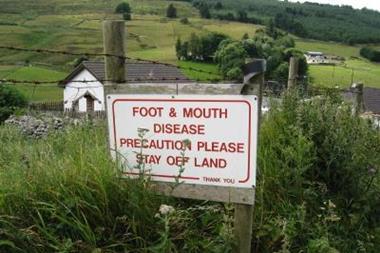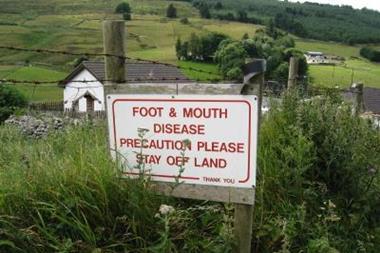The UK House of Lords has launched an enquiry into the policies, principles and practicalities behind government risk management. The Lords Economic Affairs Committee - one of four permanent investigative committees in Britain's upper Parliamentary chamber - has been taking oral and written evidence since October and will publish its report, supporting evidence and recommendations later this year.
Risk has been a hot potato for the current Government. Crises have exposed risk management failures at strategic, programme and operational level. The Phillips Report into the 2001 foot and mouth outbreak and reports by the National Audit Office and Public Accounts Committee all raised concerns that systemic weaknesses had hobbled the government's ability to deal with risk effectively. Better risk management, on the other hand, could cut waste, keep problems from becoming crises and enable decisions on risk and innovation to be made with confidence.
In November 2002, the Downing Street Strategy Unit published its own report on the Government's risk management, identifying four areas of direct threat: terror attack or nuclear accidents; safety issues, such as BSE, rail safety or flooding; risks to the environment, and transfer of risk in capital projects and service delivery to and from the private sector. It produced a broad framework for understanding risk, and clarifying how, and by whom, risks could be managed, complete with plans to make government risk management more coherent. These included a comprehensive programme of change in departmental culture.
A small, Treasury-controlled risk support team then spent two years driving the risk improvement agenda across Whitehall, with risk improvement managers in each department linked to an interdepartmental network. "The Government has been taking the issue of risk increasingly seriously," says clerk to the committee, Robert Graham-Harrison.
Now, though, senior government figures seem to be developing a more rounded and realistic understanding of risk, appreciating that risks need to be balanced against the costs of reducing them, and that excessive caution can have unwanted consequences. In May 2005, the Prime Minister gave a speech at the Institute of Public Policy Research, suggesting that schools, local authorities and other public bodies were taking a disproportionate attitude to risk, and that the UK was in danger of becoming too risk-averse a society as a result. There are concerns that local government officials, wary of being held liable, tend to interpret regulations over-zealously, leading to ludicrous bans.
Perhaps the tide is turning. One stated aim of the Compensation Bill currently working its way through Parliament is to stamp out perceptions of a compensation culture.Lord Faulkner, the Lord Chancellor, says the legislation will 'discourage false perceptions that compensation is available for any untoward incident' and help to ensure that invalid claims are 'discouraged and resisted'.
Risk, money, freedom
All states purport to be, to some extent, guarantors of citizens' security. In medieval and early modern Europe, military defence of the realm and maintenance of the peace were as far as expectations went. By the 19th century, however, public health and policing were starting to become concerns for European governments. By the 20th, governments had become thoroughly involved in managing risk to citizens' health and finances, through social security, medical services and health and safety standards.
Today governments face demands to shield people from the uncertainties of progress. Rapid scientific development is forcing departments and regulators to judge the balance of risk and benefit across a range of technologies, from GM food to medical treatments and cloning methods. The result is a focus on precautionary principles. At the same time, integrated global communications, trade and finance are making citizens more vulnerable to distant economic, political or environmental crises.
But while people are happy to face less risk, there are limits to the money - and freedom - they are willing to give up in the name of health, safety and security. As paying passengers, consumers or salaried workers, they demand steel-plated protection. At home and in their leisure activities, however, they will cheerily accept much higher risks. One question the Lords' Committee is asking is how best to determine public attitudes to risk and, where appropriate, incorporate them into policy. Another is inter-departmental consistency. Despite the Treasury's efforts, this still seems more of an ambition than a fact. When analysing project costs and benefits, for example, departments each have their own methods for pricing lives and injuries. Enforcing a consistent approach, says Graham-Harrison, is likely to be among the committee's key recommendations. Chaired by Lord Wakeham, the Lords Economic Affairs Committee has 13 members. Witnesses to the current enquiry have included the Governor of the Bank of England and representatives of the Association of British Insurers, Health & Safety Executive and Health & Safety Commission.
In dealing with risk, governments can feel themselves besieged by a hostile opposition and hysterical media. For example, reason might suggest that more lives would be saved if money were spent improving road accident black spots instead of on rail signalling. But political judgements are not always rational ones.
Britain's government is not the only one wrestling with risk and seeking to apply private sector financial, project and programme management techniques to its business. Canada's government, for example, has developed an integrated risk management framework, intended as a practical guide to help departments and agencies think strategically and set common priorities.
Ultimately, says Graham-Harrison, risk management is about using rational analysis to make correct decisions. "The point is not to remove risk," he says, "but to weigh it and make a judgement."
Peter Joy is head of research, Newsquest Specialist Media
What the Lords' Economic Affairs Committee is asking
- Can appropriate monetary values be estimated and attached to risk-related factors?
- Is it appropriate and practical to use non-monetary measures of well-being?
- What is the scope for other methods of public consultation in order to determine public attitudes to risk?
- Is it possible to identify fundamental principles that should be applied across the public sector? and are the same principles equally applicable to the private sector?
- Is there sufficient consistency and coherence in the application of risk assessment and management policies across government departments and agencies?
- How should policy deal with cases where public perceptions of risks diverge significantly from expert assessments?
- How should policy deal with risks that are unknown or poorly understood, such as those associated with new technologies?
- How should policy balance the health and safety interests of the current population against those of future generations?
- Are there any particular or unusual problems arising in cases of rare but catastrophic risks?



















